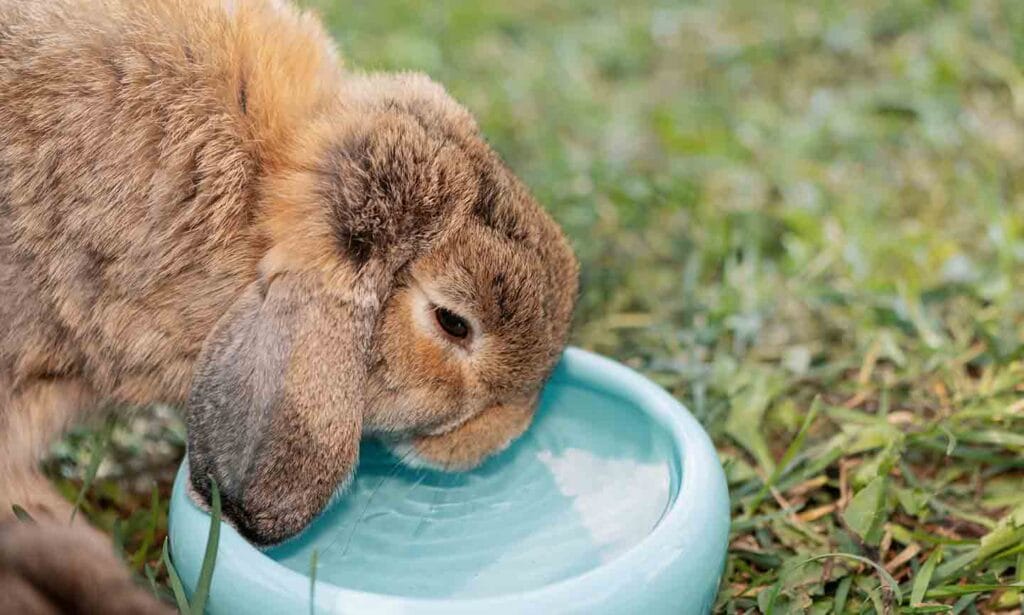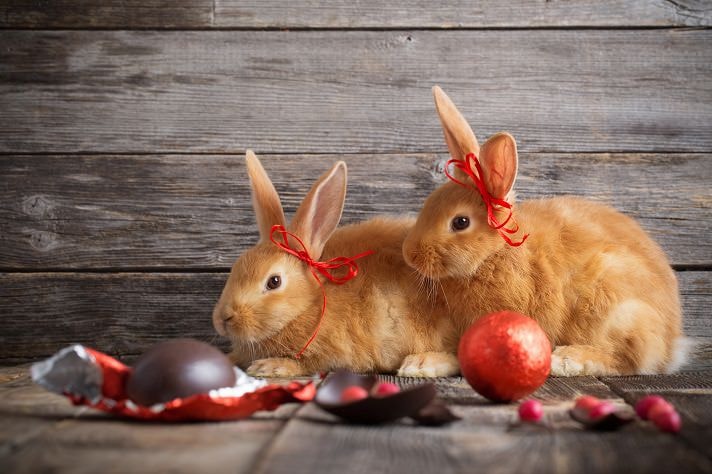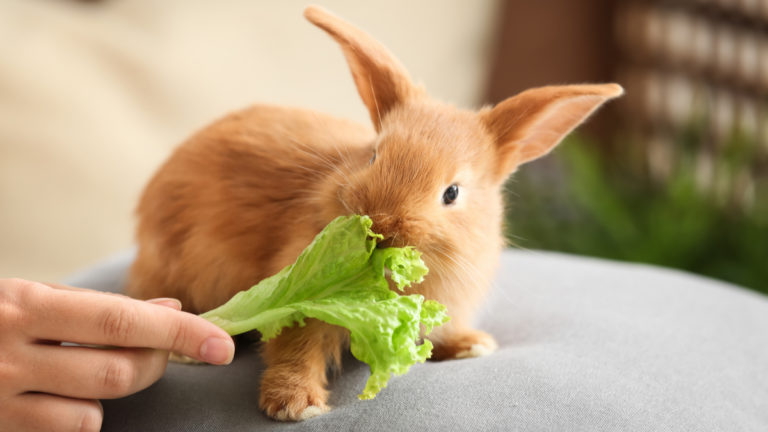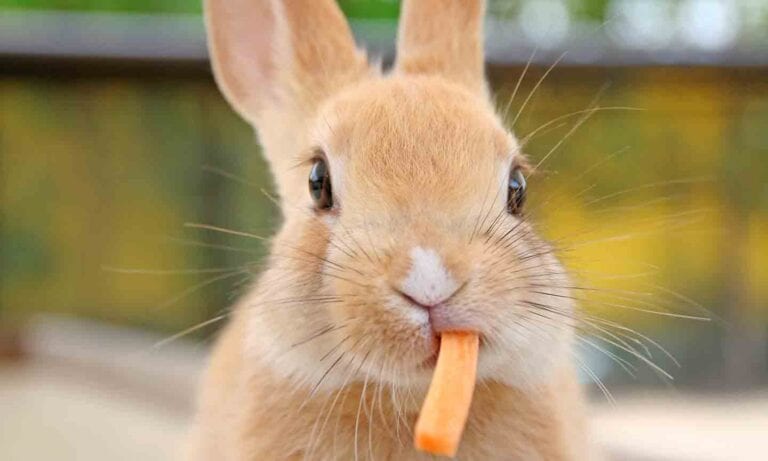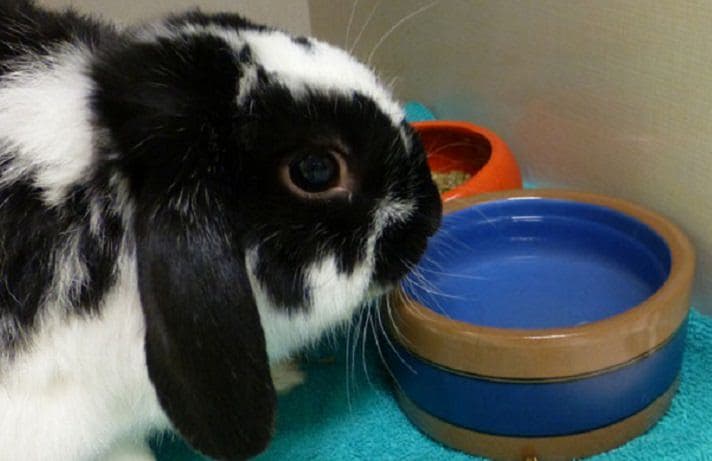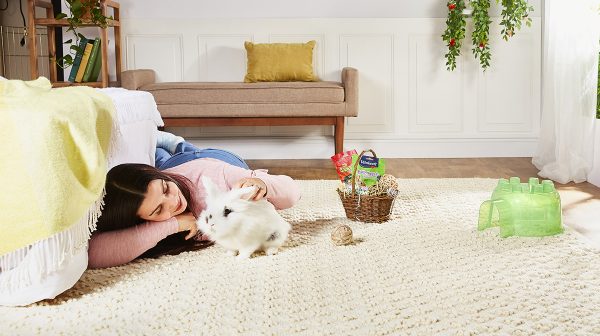In This Guide
How Water Helps Your Bunny
Water is an essential part of rabbit care, and it impacts your rabbit’s health in many different and surprising ways. Here are some of the top reasons it’s so crucial that they get enough water every day.
- Aids in digestion: A rabbit’s gastrointestinal (GI) tract is essentially a “fermentation vat of plant matter,” notes Micah Woods, DVM, an exotic pets veterinarian at Ooltewah Veterinary Hospital in Chattanooga, Tennessee. As such, water plays an integral role in their digestive system. “Without enough water, the food material could be thick and unable to move normally through the GI tract,” he says.
- Fosters cardiovascular health: As with all mammals, getting the proper amount of hydration enables a rabbit's heart to function at its maximum potential.
- Promotes kidney function: Rabbit diets are high in protein and calcium, which makes them more prone to developing kidney stones and bladder stones. It also makes rabbit urine quite thick compared to other animals. “Without adequate hydration, their urine—which is already a more thick and concentrated urine—turns into a sludge, slimy material,” Woods says.
- Regulates their temperature: Pet rabbits may be prone to overheating—particularly in hot weather—because of their dense fur and limited sweat glands. Water helps regulate their body temperature, which minimizes their risk of heatstroke and dehydration.
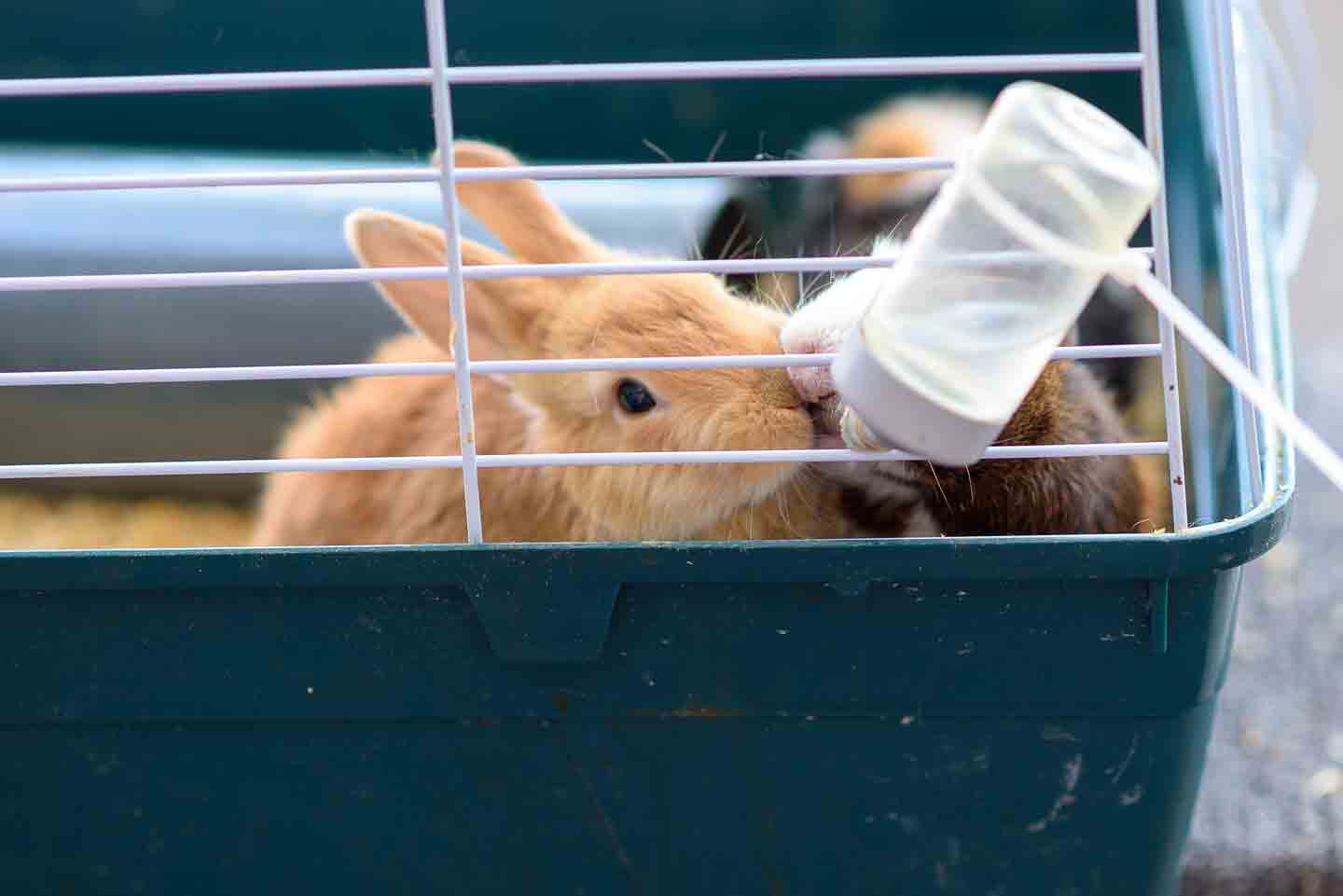
How Much Water Do Rabbits Need?
Rabbits should drink approximately 50-150 milliliters of water per kilogram of body weight daily, says Woods—that translates to about 1-2 ounces per pound. However, the amount of water a rabbit drinks ultimately depends on their size, age, environmental temperature and activity level. If they’re larger, very active or it’s hot, they’ll need more.
How To Give Water to Your Rabbit
It's essential for rabbits to have access to fresh, clean water at all times to meet their hydration needs. Monitoring water consumption and providing ample water sources can help ensure rabbits stay healthy and hydrated. Some pet parents provide water in water bottles; others use water bowls. So what’s the best way to give your rabbit water?
“There is plenty of research that has shown that water bowls are the ideal way of providing water,” Woods says. That’s because it’s easier for rabbits to drink from a bowl than a water bottle, because they don’t naturally look upwards.
When choosing a bowl, Woods recommends picking one made from a no-chew material to prevent nibbling, and with a wide base to prevent tipping.
Tips on Keeping Your Rabbit’s Water Fresh
Providing your pet rabbit with water is the first step in helping them stay hydrated, but you’ll also want to ensure that water remains clean and fresh.
To do so, wash your rabbit’s water bowl or bottle with mild soap and water daily. This helps prevent the buildup of algae, bacteria and other contaminants. Rabbit keepers will need to use a bottle brush to clean small bottles. Give them a fresh supply of water every time you clean the water dishes.
It’s also a good idea to place your rabbit’s water bowl on a water stand, or to secure the water bottle to the side of the cage. Elevating the water can help prevent contamination from bedding material or droppings.
Ways To Encourage Your Rabbit To Drink Water
Along with providing access to clean water, here are some additional ways pet parents can encourage bunny hydration:
- Provide multiple water sources: Place water bottles or bowls in different areas of your rabbit's enclosure. This ensures easy access; allows them to choose what method they prefer; and provides a backup option just in case.
- Add some greens: “I have had some owners report they put some fresh greens from their meals to float in the water,” Dr. Woods says. Not all rabbits like this tactic, though, so watch your rabbit after you put greens in their water to make sure it’s not deterring them from drinking.
- Try fresh pineapple juice: “In some long-haired breeds, it can be recommended to put a small amount of pineapple juice in the water,” Dr. Woods says. “Being acidic, it helps prevent hairballs by breaking them down. More times than not, these owners also report this entices their rabbits to drink.” Be sure to use fresh pineapple juice, not canned, and use just a small amount, as too much fruit juice can contribute to obesity and dental problems in rabbits.
- Keep it clean: Always clean your rabbit’s water dish to prevent buildup of bacteria and contaminants. It’ll taste better and be healthier for them.
Dehydration in Rabbits
Dehydration in rabbits is a serious matter that can result in organ failure and even death. Because of their small size, limited sweat glands and dense fur, they are prone to overheating and dehydration.
Symptoms of dehydration in rabbits include:
- Reduced or no urination
- Very thick, sludgelike urine
- Dry, sticky gums
- Sunken eyes
- Lethargy or weakness
- Reduced appetite
- Elevated heart rate
If you suspect your bunny is dehydrated, offer fresh, clean water immediately and seek veterinary care.
FAQ About Water for Rabbits
Q:
What kind of water can rabbits drink?
Q:
Do wild rabbits need to drink water?
Q:
How do I stop my rabbit’s water bottle from leaking at the drinking tip?
Water consumption is imperative for your cute bunny. Always keep an eye on your rabbit's water intake, and refill the bottle or bowl as needed to ensure an adequate supply. Looking for more rabbit care tips? We’ve got you covered.
Expert input provided by Micah Woods, DVM, an exotic pets veterinarian at Ooltewah Veterinary Hospital in Chattanooga, Tennessee.
This content was medically reviewed by Chewy vets.
More Rabbit Tips
Share:
